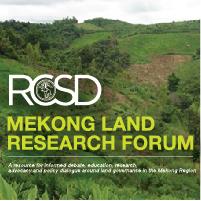Resource information
ABSTRACTED FROM SUMMARY: A bitter land struggle is unfolding in northern Burma’s remote Hugawng Valley. Farmers that have been living for generations in the valley are defying one of the country’s most powerful tycoons as his company establishes massive mono-crop plantations in what happens to be the world’s largest tiger reserve. The Hukawng Valley Tiger Reserve in Kachin State was declared by the Myanmar Government in 2001 with the support of the US-based Wildlife Conservation Society. In 2004 the reserve’s designation was expanded to include the entire valley of 21,890 square kilometers (8,452 square miles), making it the largest tiger reserve in the world. Today a 200,000 acre mono-crop plantation project is making a mockery of the reserve’s protected status. Fleets of tractors, backhoes, and bulldozers rip up forests, raze bamboo groves and fl atten existing small farms. Signboards that mark animal corridors and “no hunting zones” stand out starkly against a now barren landscape; they are all that is left of conservation efforts. Application of chemical fertilizers and herbicides together with the daily toil of over two thousand imported workers are transforming the area into huge tapioca, sugar cane, and jatropha plantations. In 2006 Senior General Than Shwe, Burma’s ruling despot, granted the Rangoon-based Yuzana Company license to develop this “agricultural development zone” in the tiger reserve. Yuzana Company is one of Burma’s largest businesses and is chaired by U Htay Myint, a prominent real estate tycoon who has close connections with the junta. Local villagers tending small scale farms in the valley since before it was declared a reserve have seen their crops destroyed and their lands confiscated. Conflicts between Yuzana Company employees, local authorities, and local residents have flared up and turned violent several times over the past few years, culminating with an attack on residents of Ban Kawk village in 2010. As of February 2010, 163 families had been forced into a relocation site where there is little water and few finished homes. Since then, through further threats and intimidation, others families have been forced to take “compensation funds” which are insufficient to begin a new life and leave them destitute. Despite the powerful interests behind the Yuzana project, villagers have been bravely standing up to protect their farmlands and livelihoods. They have sent numerous formal appeals to the authorities, conducted prayer ceremonies, tried to reclaim their fields, refused to move, and defended their homes.



